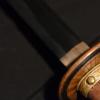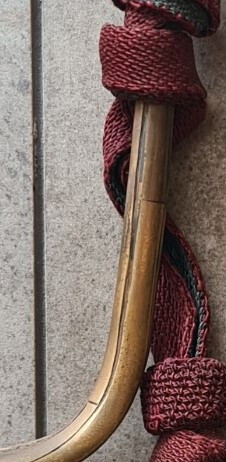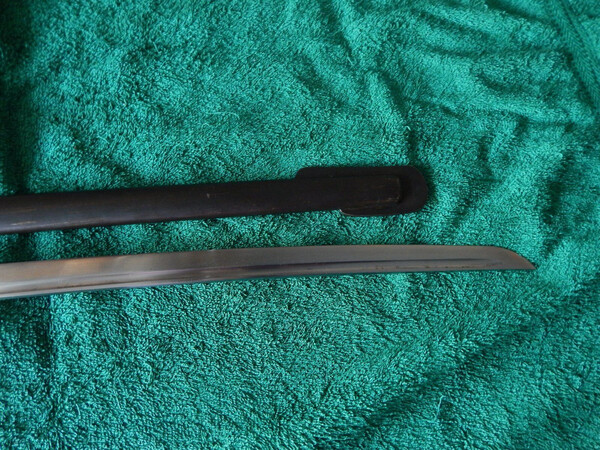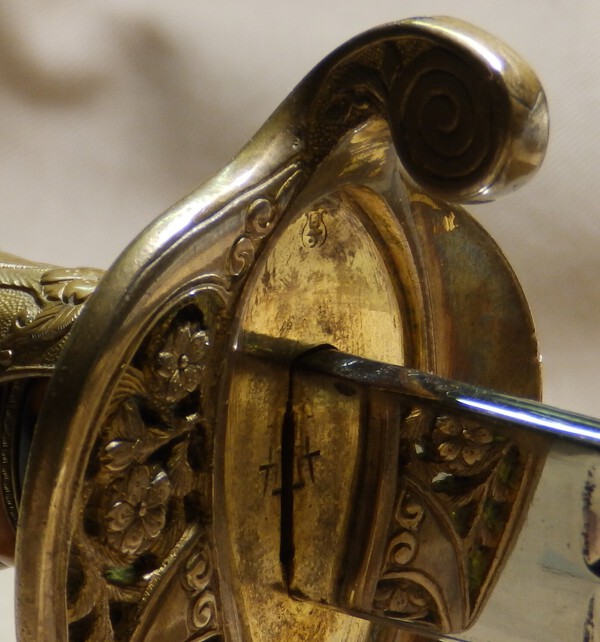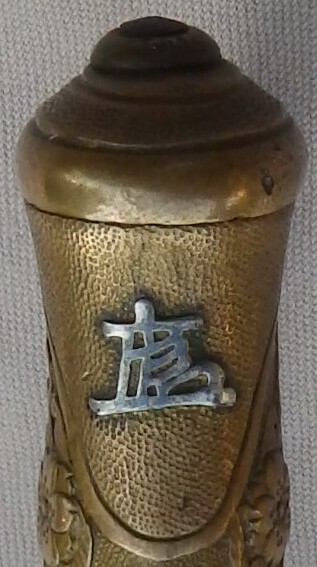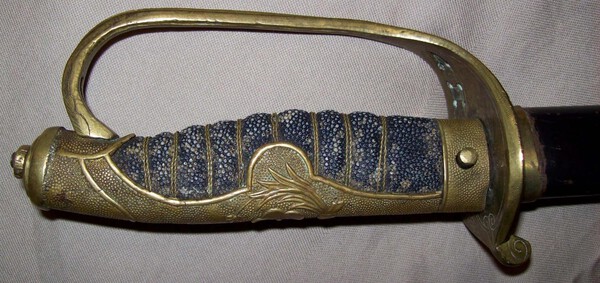
Michael T
Gold Tier-
Posts
16 -
Joined
-
Last visited
About Michael T

- Birthday 12/07/1962
Profile Information
-
Gender
Male
-
Location:
Germany / Saxony
-
Interests
Japanese Military Swords
Profile Fields
-
Name
Michael T
Recent Profile Visitors
816 profile views
Michael T's Achievements
-
Michael T started following Fleebay seller piddling multiple fakes, but is his type 19 fake? , Shin Gunto of Major General OKADA Umekichi , Attention Mantetsu Owners: A Survey and 4 others
-
Hello - On September 16, 1945, the Japanese armed forces in Hong Kong surrendered and Major-General OKADA Umekichi handed over his shin gunto to the British naval officer Sir Cecil Harcourt. https://gwulo.com/node/59733/photos-of-person In 2012 I found it in the wonderful National Maritime Museum Greenwich and took the following photographs. It's rare to see a shin gunto (+sword knot!) where a general can be clearly and credibly proven as the owner. Michael
-
Attention Mantetsu Owners: A Survey
Michael T replied to Bruce Pennington's topic in Military Swords of Japan
In his book “Japanese Generals 1926 - 1945”, Richard Fuller lists two Lieutenant Generals and four Major Generals with the name OKADA. None of the biographies match the General we are looking for. Bruce, the Lieutenant General you found is Okada Tasuku (Tasuke). He was executed on September 24, 1949. (Richard Fuller) But: The Shin Gunto of Major General OKADA Umekichi is in the National Maritime Museum in Greenwich, UK. I photographed it in 2012, and if anyone is interested, I can upload a few pictures. -
Hello Conway, the parade saber is still in the same condition as when I received it. The scabbard mouth and the wooden strips of the scabbard are missing. The tip of the blade was shortened a bit – perhaps because the tip of the scabbard has some deep dents and the blade could no longer be pushed all the way in. The handles of the two examples of this model are the only ones I know that simultaneously feature both the five-petal Sakura AND the ten-petal cherry blossom. Michael
-
Hello Tensho Thanks for showing this dress sword, here is another example of this model. From time to time, similar pieces from the early days of the Japanese armed forces appear on the market. I consider these two pieces to be regular IJA models from the 1870s. Wherever a Japanese officer carries a dress sword, there is also a kyu gunto. If one has survived and is now in a collection, I would be very happy to see it here! Michael
-
Hi Justin, Was the screw drilled out to remove the blade from the handle? The metal shavings in the drill hole still look very fresh... Michael
-
Backstrap and the hand guard of the brown handle look original to me. The hand guard has a small break, as you sometimes see there on real pieces as well. A look at the inside of the backstrap would be interesting. Michael
-
Your opinions on this police dress sword please
Michael T posted a topic in Military Swords of Japan
Hello, I would like to present a variant of a police dress sword. The models on the right and left are well known pieces also seen at F&G, Dawson and Plimpton. The model in the middle has a modified version of the back decoration, the push button is missing, the end cap is not a single piece but was cast complete with the back piece. When I first held this dress sword, I thought it was possibly for a rank between the other two. However, the distinction to the left as well as the right is too small for that. It is probably one of many variants from the 1870s / 1880s. Perhaps there is a clue on the paper strip pasted on the scabbard (surrender tag??). I would be very interested in your opinions AND does anyone have the heavy version of this sword in his collection? Thanks a lot! Michael -
Identification of a kao on a Type 19 general dress sword
Michael T replied to Michael T's topic in Military Swords of Japan
Thank you - I also think it's the general's personal kao and that makes identification almost impossible. Maybe he signs with his kao or he uses a hanko / stamp for it. It would be a great coincidence to find such a signed document. Your "Stamps Of The Japanese Sword" is a very helpful compendium that I have already used! The book you mention is likely to be “Shosankenshu” by Henry L. Joly - it is helpful for Nihonto collectors. The blade is a simple chrome-plated blade, as it is mounted in many dress swords. It has no other marks. Michael -
Hello everyone! For several years I have owned this Type 19 general grade dress sword. The guard is marked (early ?) Suya and a stamp unknown to me. Where the kamon is attached to some swords, there is a kao or kakihan - a mark that may be the owner's seal/signature or monogram (I hope my interpretation is correct). There are books and a lot of information on the web about kamon, but I've found very little about kao/kakihan. My questions: Who has seen this kao before and recognizes it? Who has ever tried to identify a kao - how can it resolved? I would also be very interested to see other Japanese military swords with kao. Thank you Michael
-
Hello, it's a Type 19 field grade court style army sword. Unfortunately the scabbard tip is missing.
-
Real Or Fake Quizzzzzzzzzzzzz (Tassels)
Michael T replied to lonely panet's topic in Military Swords of Japan
@vajo : Dawson p. 408 Michael -
Real Or Fake Quizzzzzzzzzzzzz (Tassels)
Michael T replied to lonely panet's topic in Military Swords of Japan
Real and new - Japan Maritime Self Defense Force Michael -
Hello Peter, here are some photos of another sword, being the same like yours. J.E. Culbertson describes it in “Chinese Swords Vol. III - Nationalist / P.R.C” p. 24 as a Nationalist Chinese Police Sword (photos by Richard Fuller). Regards Michael
-
Hello and SURPRISE ! - the next generals tassel from the same seller : http://www.egun.de/market/item.php?id=5142011 Michael


